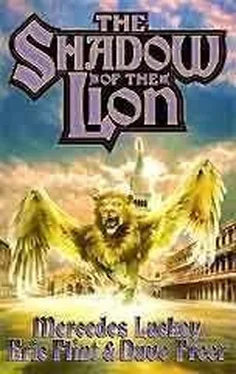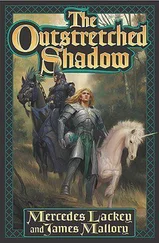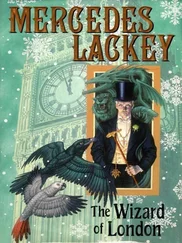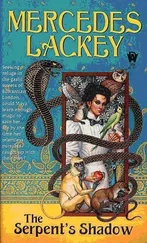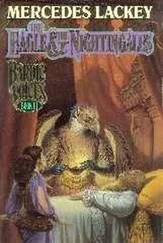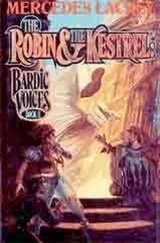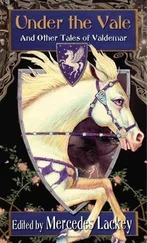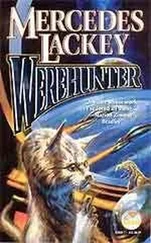Marco's stomach churned. The fear and its aftermath made the very thought of food revolting.
"Grazie; but no. I'm fine."
She smiled, relieved. "Off wi'ye, then, ye'd best hurry."
Marco went, finding the way back to his raft, and poling it out into the black, open water of the lagoon. In the distance were the lights of Venice. But the tide was out. He would have to pole the channels. At least coming back he would be able to run with the turn of the tide at dawn.
* * *
Lots of lights in the city tonight--lots of noise. Marco blessed it all, for it covered his approach. Then remembered--and shame on himself for not remembering before--that it was Solstice Feast. What night of the Feast it was, he couldn't remember; his only calendars were the moon and stars these days, and the seasons. By the noise, probably well into the festival. But that meant Benito would be delayed by the crowds on the bridges and walkways. That might prove a blessing; it gave him a chance to check all around their meeting place under the wharf for more of Them.
He poled all over beneath the wharf, between the maze of pilings, keeping all his senses alert for anything out of the norm. There wasn't anyone lying in ambush that he could find, not by eye nor ear nor scent, so he made the raft fast and climbed up into their meeting place among the crossbeams out near the end of the wharf.
The first time they'd met here--after Marco had slipped into the town with his heart pounding like an overworked drum, and passed Theodoro a note to give to Benito--they hadn't said much. Benito had just wrapped his arms around his brother like he'd never let go, and cried his eyes sore and his voice hoarse. Marco had wanted to cry too--but hadn't dared; Benito would have been shattered. That was the way the first few meetings had gone.
But boys are resilient creatures. Before too long, Benito was begging for Marco's stories again, and the tears only came at parting--and then not at all. But now the stories included another set--how they would find the agents of Duke Visconti; get Mama's message to them. The original paper was long gone, but the contents resided intact in Marco's head--and what Marco memorized was there for good and all. That was why Mama had taken him everywhere with her--when she'd ask later, he'd recite what had been said and done. And just as a precaution, Marco had made plenty of copies of that paper over the last two years. He made a new one as soon as the previous copy began deteriorating, and kept it with him at all times, mostly hidden on his raft. One day, they'd get that message back to Milan--and the Visconti would rescue them, take them home to Milan, and train them to be noblemen. Benito hadn't liked that story as much as the tales about the steelworks in Ferrara, and the doings of their grandfather the famous Old Fox, but it had comforted Marco.
When had Benito started scrounging for him? Marco wrinkled his brow in thought, and picked at the splintery beams under him, staring at the stars reflected in the wavelets in the harbor. Must have been that winter--that was it; when he'd showed up, as usual, in nothing but his trousers, shivering, and pretending he wasn't cold. Benito had looked at him sharply, then cuddled up real close, and not just for his own comfort; he'd put his little body between Marco and the wind. Next meeting, Benito'd brought a woolen cloak--old, faded, snagged, and torn, but better than anything Marco could get in the Jesolo. After that he'd never come to a meeting empty-handed, though Marco refused to ask him for anything.
Lord knew he needed those meetings himself; needed the comfort, needed to hold someone, to talk to somebody sane. Chiano and Sophia were only sane sometimes. He'd needed company even more than the material comforts Benito brought, and he needed those desperately.
* * *
He waited. And waited. But before the largest bell at San Marco pealed, he had to leave to cross the lagoon. The uncertainty and fear it brought gnawed at him.
As he always did at times like this, he thought about magic. Chiano was a magician--a master of his craft, if one believed the stories he told when he was around Marco and felt no need to be cautious, or the cheap rotgut he brewed went to his head. Perhaps no one but Marco and Sophia did, though, because he never used magic much anymore. "Too dangerous," he said, and it went without saying that he was probably right. Someone had certainly tried to kill Chiano, leaving him wandering senseless in the marshes, and his magic hadn't protected him any. Of course, if the people who'd beaten him had been wearing steel armor, his magic wouldn't have been much use against them.
Chiano claimed that people--other magicians--could tell when magicians were casting a spell, what kind it was, where the magician was, and even who was doing the casting. That was why it was too dangerous for him to use magic unless there was no other choice. But then, there was Marco.
Marco could be a magician; that's what Chiano said. He was perfectly willing to teach Marco everything he knew. There was just one little problem with that: Chiano was Strega, and Marco was Christian--and not just any Christian, but one who had been indoctrinated by his mother in the Pauline creed. It was a sin for any Pauline who was not an ordained priest to dabble in magic, for only a priest was sufficiently armored in holiness to withstand the blandishments of the Evil One, who was always on the watch for magicians to tempt them into using their powers for selfish purposes. It was, according to everything Marco had been taught, a short step from selfishness into real, black sin. And it was doubly, triply, impossible for a true Christian to even think of using Strega magic. Marco was already deep enough in sin as it was, associating with the pagans.
But life would have been so much easier with the help of a little magic . . . a little magic to tease the fish into his traps, a little magic to keep him warm in the winter, a little magic to protect him--
No, he told himself. That was temptation, and behind temptation was the Evil One. Surely God was watching him--well, maybe not God, but an angel, anyway--watching and waiting to see if he fell; and if he fell, washing His hands of Marco, who was not strong enough to resist so minor a temptation.
But oh, it was hard, hard to resist at times like these.
The sounds of Solstice Feast drifted over the water; over there, people thronged the waterways, the streets, the plazas, everyone wearing some sort of mask, even if they couldn't afford a costume. People who had saved all year for this time were stuffing themselves with fatty sausages, bread, rich bean soup, Salame, Mortadella, Cotechino, still-steaming loaves of ciabbata, thick fragrant zuppa di fagioli--
Don't think of food!
With Lent on the horizon, they were throwing themselves into pleasure.
Pleasure leads to temptation, and temptation to sin, he reminded himself. But even Mama's stern Dell'este family had enjoyed Solstice Feast. And when Mama had come here to Venice, she had made certain that at Solstice Feast there had been masks and costumes for all three of them, and that at least once during the three days of the festival they had all gone out together, to see the stilt-walkers, the jugglers, the musicians, even a puppet-show or a play. She always seemed to know what great house was giving away food after a feast, too--wonderful food, bread as white as could be, soaked with the juice of the meat the great folks had eaten, piecrust heavy with gravy with bits of mushroom and venison clinging to it, the broken sweetmeats of marchpane and sweet cake--
Don't think of food!!
Faintly the sound of singing floated over the marsh, and Marco bit his lip, overwhelmed for a moment by loneliness. Don't think of Mama either.
Читать дальше
